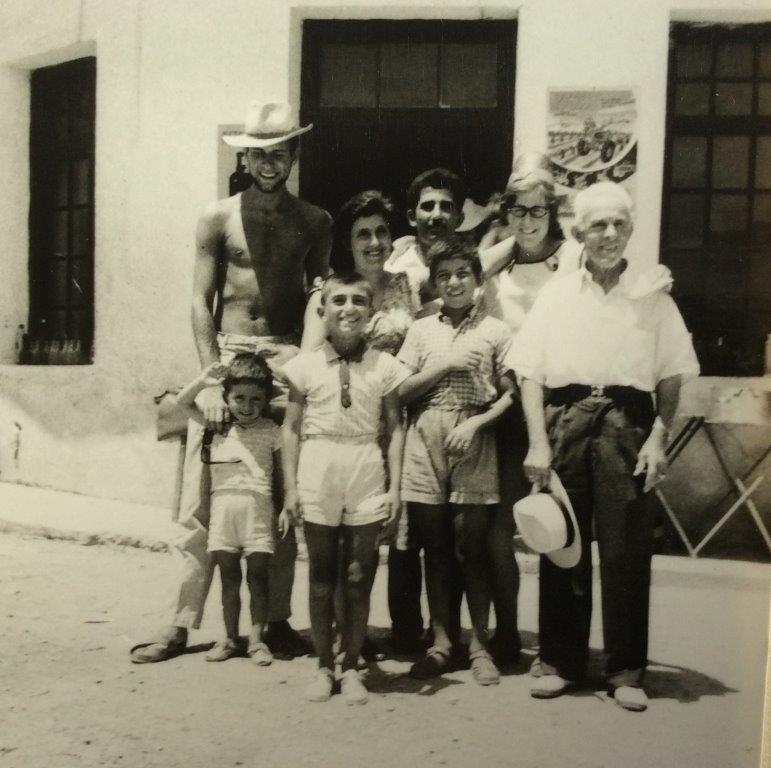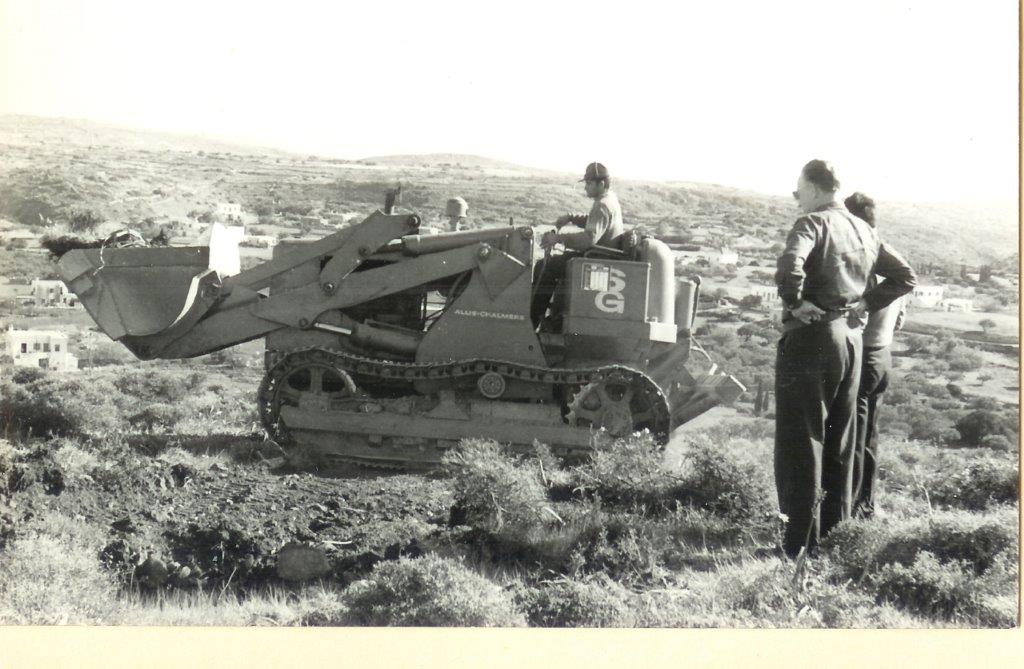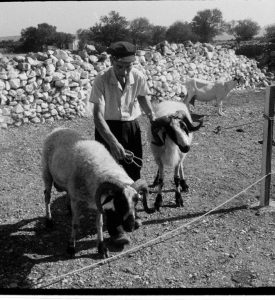This article has been published in the Dutch Vlaardingsche Courant in 1966. Translated by Jean Bingen.
Vlaardingen 1966
Dream island Kythera impoverished by departure of inhabitants
Not much is left of the appearance of Kythera at the time they thought Aphrodite set foot ashore. People depart. (…)

Poverty and underdevelopment threaten future of the island
This departure goes on. Every week island-youngsters pack their belongings and leave to seek their fortune somewhere else. According their opinion the clock at Kythera stands still, they don’t feel for the timelessness and antiquated way one practices agriculture and fishing. Hence mainly elderly people and young children stay behind. Hundreds of fields remained untended and became deserts. Fruit trees are not picked, and olive trees not pruned. One finds poverty and underdevelopment everywhere.
However, for a brief time now, a passionate struggle to change is going on. This started when the Greek-Orthodox bishop applied to the World Council of Churches. A long time already he was seriously worried about the island and had learned of the possibility to invite an ecumenical team to constructively work together with the population. His appeal for help was heard and after some time churches from various countries could send an international team to Kythera. In time many changes were achieved. The most specular of these is the reforestation. This started with the arrival of Mr. J.M. (George) Koksma and his wife.
(click photo to enlarge)
Trees and animals
Mr. Koksma’s vision was trees and animals could save Kythera. He made the islanders clear how important this was for them and persuaded them to plant trees together. On once desolated fields now grow trees. Churches and monasteries are increasingly surrounded by young plantings from tree nurseries. (…) Once trees will have changed Kythera into a green haven inside the movable blue of the sea. Then a start will have been made with controlling the erosion. Tree roots will force their way into the stony subsoil and crumble the rocks. Timber will become available, which is needed by Greece, fruits will be harvested. Trees also give shadow to grow grass to pasture the cattle. Cattle provide milk, wool and meat. Animals could mean a revolution for the economy of Kythera and provide a better life for its population.
Water
Cattle cannot survive from fodder only; they also need water. Large concrete water tanks are designed to store water for wintertime. They are located at strategic places and promise to provide water for cattle in the future. Livestock at farms need good shelters and for this reason modern hygienic stables are designed and have been constructed in close cooperation with the farmers.

Plans
Nowadays (1966) after five years of demanding work the team is busy with 170 projects which can be rubricated in ten sections:
- Reforestation
- Water Economy
- Road Construction
- Education
- Stock breeding
- Church and Sunday School Service
- Agriculture
- Social Welfare
- Industry
- Technical Assistance
Most important however is that the population learns that one should not cling to the way of life as their ancestors and not to distrust all innovations. There is no money available in these poor circumstances to undertake large projects. Help from outside is required to continue the already started projects. The reforestation project could be increased by a special gift of the British Council of Churches. A bulldozer was donated by the German action “Brot für die Welt” (Bread for the world).
Home economic school
The plan to build a home economic school for 80 girls age 13 to 16 years, is a nice example where Kytherians actively take part. This is a long-nursed wish of the bishop and his people. Now 40 girls attend the three-year’s course. Most of them are resident and only go home for the summer vacation. They are taught cooking, sewing their own cloths, weaving, embroidery, gardening and some farming. The existing school is a very old building. Living quarters are limited and an extension is not possible. The expectation is to build a two times larger new building.
Harbour
It is not possible to tell everything that happened and still will happen on this poor island. The population took part in the enlargement of the landing stage at Kapsali, in the community center at Chora, in the installation of radios in the Potamos hospital and the Potamos old people’s home.
*Read also the Team’s projects through the years
The Netherlands
Through the action of the World Council of Churches more countries and more churches get involved in the development plan. The most important support is given by The Netherlands. Plastic pipes for a water supply system in several villages had already been sent from Holland some years ago (in 1962, for Potamos, Logothetianika and Karavas).
But the work must be continued, much still should be accomplished before Kythera again will be prosperous. Vlaardingen could help a little bit to achieve this goal.



